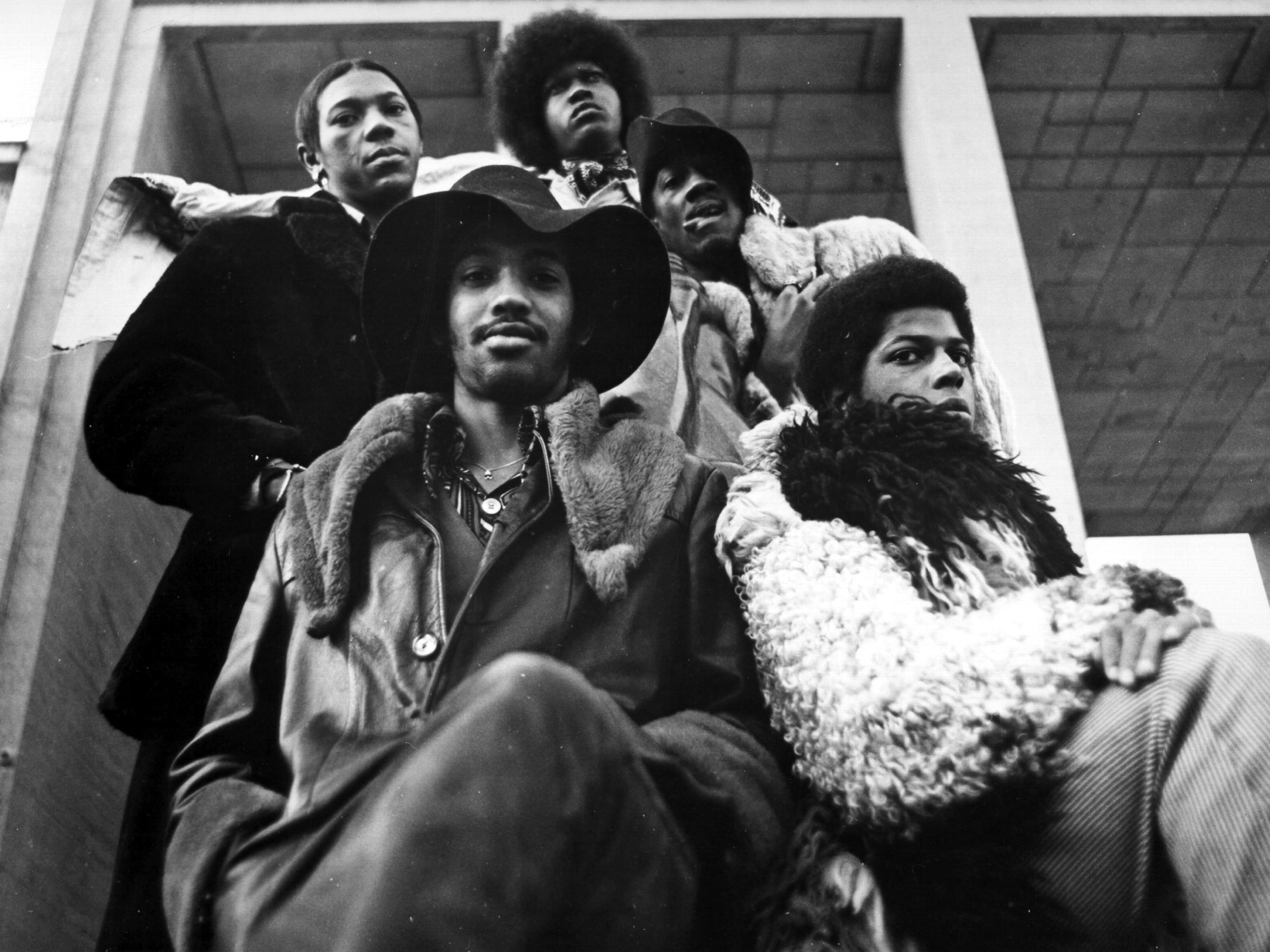By John Frechette
Campus News
With February being Black History Month, it made sense to shine the spotlight on one of the most influential Black music groups of all time, Parliament-Funkadelic. The story of P-Funk starts and ends with one man, George Clinton, born in 1941. Clinton, who was known by various different names and personas throughout his records, lead the group of African-American musicians who would become known as the P-Funk Empire. Through the work of 16 integral members who were inducted to the Rock and Roll Hall of Fame, as well as countless others throughout the years, the bands of Parliament and Funkadelic, as well as various side projects, became some of the most influential funk artists of all time.
Though Funkadelic was the first band to be released, the group first started as a barber shop quartet called The Parliaments, named after the cigarettes. Funkadelic eventually released their first, self-titled album in 1970. From the opening of the first song, “Mommy, What’s a Funkadelic?,” we are introduced to the acid-laden tempest which is Funkadelic’s sound. More studio dominance occurred on their second studio album, Free Your Mind… And Your Ass will Follow, but released their masterpiece with Maggot Brain in 1971. From the opening of the album, it is clear that guitarist Eddie Hazel will dominate the album, and possesses all the talent necessary to be the main event. One of the most underrated of the era, the 10-minute guitar solo of the title track defined Hazel’s career so much that the song was played as Hazel’s coffin was laid to rest. While the rest of the album fails to live up to the title track, it is because of the power of “Maggot Brain,” not a deficiency of quality songs on the rest of the album, as “Hit It and Quit It” and “You and Your Folks. Me and My Folks” highlight strengths for the rest of the album. Funkadelic continued to release strong records throughout the 70s, with highlights being “No Compute” and “Cosmic Slop” from Cosmic Slop, “I’ll Stay” from Standing on the Verge of Getting It On, and “(Not Just) Knee Deep” from Uncle Jam Wants You.
On the other end of the P-Funk spectrum, we find Parliament’s high-energy space funk. While Funkadelic fit in with other acts of the 60s and 70s, most notabl ythe Jimi Hendrix Experience, Parliament fit much better within the circles of Sly & The Family Stone and James Brown. Most notably, Parliament features the synthesizer sounds ok keyboard wizard Bernie Worrell. The first Parliament album, Osmium, was released in 1970, but it wouldn’t be until 1974 until we would get another release from the band. The band released a new record about every six months, but truly struck gold with Mothership Connection in December of 1975. The album opens with “P. Funk (Wants to Get Funked Up)” and “Mothership Connection (Star Child)” and notably contains P-Funk’s most recognizable song “Give Up the Funk (Tear the Roof Off the Sucker).” The group followed this record up with The Clones of Dr. Funkenstein and the Funkentelechy vs. the Placebo Syndrome which notably featured songs such as “Bop Gun (Endangered Species)” and “Flash Light.” Like Funkadelic, Parliament continued to release records for the rest of the decade.
Alongside Clinton, the P-Funk Empire featured many other successful musicians, most notably bassist Bootsy Collins. Collins, along with his brother Catfish, were defectors from James Brown’s backing band, and found refuge in P-Funk, where they were able to express themselves more than Brown had allowed. Being the most recognizable member of the collective, Collins was eventually rebranded into his own side project. Bootsy’s Rubber Band released three all-time classic albums with Stretchin’ Out in Bootsy’s Rubber Band, Ahh… The Name’s Bootsy, Baby!, and Boosty? Player of the Year in 1976, 77, and 78, respectively. Each record produced gems for the funk listener including “Stretchin’ Out (In a Rubber Band),” “I’d Rather be With You,” “What’s a Telephone Bill?”, “Can’t Stay Away,” and “May the Force be With You.” In addition, Hazel had a solo album, Game, Dames, and Guitar Thangs which notably had a trippy cover of “California Dreamin’” by The Mamas and The Papas. The album was at one time extremely hard to uncover on vinyl, with an episode of Homicide: Life on the Street being based around a character being killed for his copy of the album. The most notable solo act to come out of the P-Funk Empire was George Clinton himself. For his mega-hit, “Atomic Dog,” Clinton, who at this time was struggling with substance abuse at the time, discovered his musicians recording in the studio without him. Not wanting to show Clinton their work, the musicians played their studio efforts backwards to Clinton, so the music would not “work.” Undeterred, Clinton started feeling out vocal melodies over the backmasked track, and eventually wrote “Atomic Dog” over this, and produced his most notable solo track.
Something remarkable about Clinton is his influence on generations of musicians who came after him. Dr. Dre has often cited Clinton as one of his musical idols, and sampled the band all over his 1992 masterpiece, The Chronic, including sampling “Atomic Dog” on “Fuck Wit Dre Day (And Everybody’s Celebratin’)” and sampling a live version of “Mothership Connection (Star Child)” for “Let Me Ride.” Clinton himself even appears on the first track “G Funk Intro” of Snoop Dogg’s Dr. Dre produced record Doggystyle. Notably, the P-Funk collective still tours today with members of Clinton’s family and descendants of other famous P-Funkers rounding out the band. Their last record, Medicaid Fraud Dogg was released in 2018.
 John Frechette is a musician earning a master’s in social work at SUNY Albany.
John Frechette is a musician earning a master’s in social work at SUNY Albany.







Facebook Comments